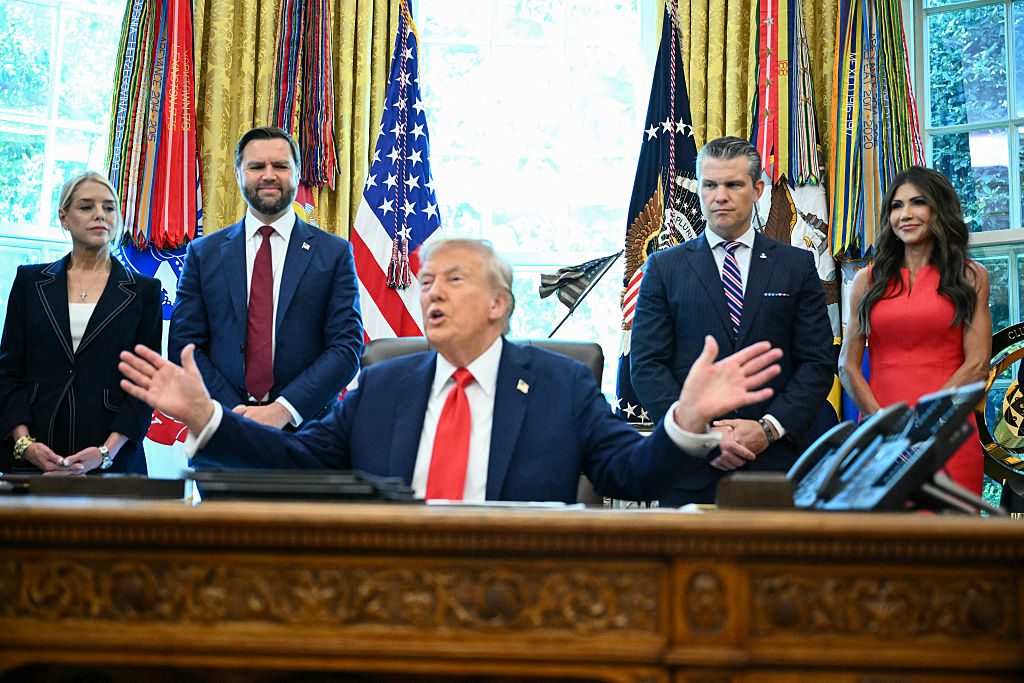A series of high-profile terminations — at the Federal Reserve, intelligence agencies, the Treasury Department and elsewhere — has sent Washington spinning. Fed governor Lisa Cook is now suing President Donald Trump over his “illegal attempt” to fire her, while the defenestration of the head of the Centers for Disease Control and Prevention — a Trump nominee who was confirmed only last month — has helped paralyse that organisation. While providing fodder for journalists, this frantic turnover also lays bare a bigger strategic imperative for the White House: to find some détente between a charismatic and a technocratic style of politics.
With his decades running the Trump Organization and dominating the tabloids, the President follows a personality-driven leadership style. Instead of being shackled by procedure, he opts to lead with his gut, viewing politics less as a clash of ideological visions and more as two or more power players striking a deal. He prefers bilateral negotiations to highly orchestrated summits for international affairs.
However, building the next paradigm almost certainly requires using, rather than simply detonating, bureaucracies. The US federal government is a globe-spanning leviathan, employing close to three million civilians and over two million in the armed services. Achieving any kind of major policy change demands phalanxes of nimble bureaucrats. Without those employees to formulate policy and enforce directives from the top, a chief executive will be left flailing. These bureaucracies provide the granular data crucial for helping policymakers understand the world in which they act.
Despite its scepticism of the expert class, the President’s populist realignment will require bureaucratic leverage to achieve any real success. For instance, a re-industrialisation programme would benefit from an encyclopaedic knowledge of supply chains — information that the federal government may not currently have. In public remarks earlier this summer, Vice President JD Vance lamented that federal experts could not tell him which products the United States was “completely reliant on some other entity” to manufacture. It will take at least a few Green Eyeshades to fill in those gaps.
The Trump administration’s global rebalancing ambitions make in-depth bureaucratic knowledge even more important. In face-to-face negotiations with world leaders, you need to know what cards each party is holding: how many missiles, fighter jets, and artillery shells. Certain key geopolitical variables cannot be reduced to a clash of personalities. For instance, a pivotal variable for the President’s deliberations about bombing Iranian nuclear facilities was whether those bombs would actually destroy those facilities. Those are technical — not charismatic — questions.
While some level of bureaucratic conflict might be an expected side effect of the President’s disruptive vision, too much chaos could actually undermine his agenda. Continuing melodrama at the Pentagon could, for instance, distract from his foreign policy reset. Also, sometimes bureaucrats can be politically useful early-warning mechanisms. Some DOGE-imposed changes to Social Security — such as cutting phone services for disability claims — generated ferocious bureaucratic pushback and were eventually withdrawn because of the intense popular opposition they generated. Likewise, the ongoing meltdown at the CDC suggests the grave political dangers of a sweeping move to limit childhood vaccinations. Such bans could easily alienate American families and split the Republican coalition.
The President’s second term, even more flamboyant and iconoclastic than the first, offers a good lesson in the importance of technical skill for a populist realignment. So far, Trump’s executive orders have had an outsized effect because he has located staffers who can dot the i’s and cross the t’s. For his biggest policy ambitions, he’ll need a bureaucracy — and he’ll need to know how to use it.











Join the discussion
Join like minded readers that support our journalism by becoming a paid subscriber
To join the discussion in the comments, become a paid subscriber.
Join like minded readers that support our journalism, read unlimited articles and enjoy other subscriber-only benefits.
Subscribe